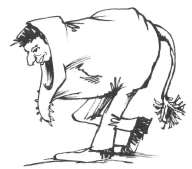 |
Home | Search | Browse | About IPO | Staff | Links |
 |
Home | Search | Browse | About IPO | Staff | Links |
|
Divided Democrats From clout to rout  AS THE 1981 legislative session dawned, the only cloud in the political sky was the election of the Senate president. The Democrats had managed to retain control of the Senate in the 1980 elections, but just barely; they had 30 of the 59 seats, a tenuous one-vote majority. They would need every vote they had to maintain control. But hadn't the Democrats maintained control in the House for the past two years despite the same, tenuous handicap? And didn't Chicago still control 21 of the 30 Senate Democrats? (Clout is such a convenient umbrella.) Wasn't Chicago's Phil Rock, president of the 81st Senate, the only possible president of the 82nd? The forecast hardly called for rain. But, by mid-November, the rumbhngs of revolt were heard in the Senate Democrats ranks. A loose coalition of anti-Byrne Democrats, led by Sen. Dawn Clark Netsch of Chicago, and downstate Democrats, led by Sen. Terry Bruce of Olney, dissatisfied with Rock's pro-Byrne leadership, threatened to stall his reelection. The rumors of defection echoed faintly but ominously, undermining Democratic unity. In 1977, similar demands by Bruce, Netsch and six others dubbed "The Crazy Eight," stalled the election of the Senate president for 186 ballots. But Rock forced a truce and Thomas Hynes, a Chicago Democrat, was duly elected. Bruce remained Rock's rival in the Senate. Netsch did not forget how Rock reneged on promises. Then, in early January, Netsch, Bruce and the others — including anti-Byrne blacks — revolted, promising to deny Rock the presidency. Led by Netsch, the coalition had become a relatively tight-knit faction. They flapped the dirty party Hnen in the papers, but to no avail. Rock refused to budge. When the Senate Democrats came to Springfield to caucus on the eve of the convening of the new legislative session, the stage was set for a showdown. No one knew what the Netsch faction was really after, but almost everyone expected them to inevitably close ranks behind Rock, or at least some other Democrat. The forecast called for scattered thundershowers, clearing by dawn. At the party caucus Tuesday night, January 13, when every vote counted, three Senate Democrats were ominously absent. The crucial absentees were Charlie Chew and Harold Washington, two Chicago blacks. Chew, a flashy, but effective machine man, was in the hospital, reportedly down with pneumonia. Washington, a fiercely obsessed independent, had been elected to Congress in November. But Chicago Democrats had yet to replace him as a state senator. Washington had been sworn in as a member of the U.S. House of Representatives January 5, but he had obstinately refused to relinquish his Senate seat in an effort to keep Chicago Democrats from rubber-stamping Byrne's pick as his replacement. Byrne wanted state Rep. Jimmie "Bulljive" Taylor, another black — and her new, $70,000, assistant chief of staff — to succeed Washington. Washington had said all along he had no intention of returning to Springfield. Only Louisiana's notorious Huey Long had ever sat in a statehouse and on Capitol Hill — at the same time — and gotten away with it. The Republicans read the caucus vote in the papers Wednesday morning: 19 votes for Rock, 3 against, 4 "present," and one for dissident Kenneth Buzbee of Carbondale. Republicans also knew that Chew was unable to return to Springfield and that no one had decided what to do with Washington's seat. The clouds turned ugly. The wind began to whine. In a few hours, Gov. James R. Thompson would gavel the 82nd Senate to order. March 1981/Illinois Issues/5 |
|
|